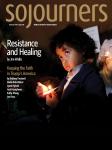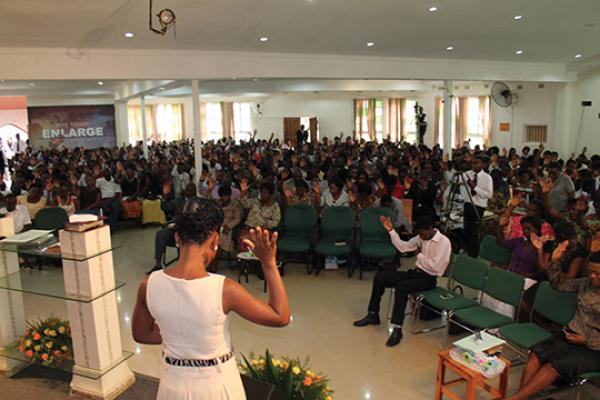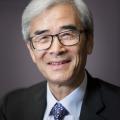Northmead Assembly of God Church in Lusaka, Zambia, is just like any other megachurch in the world’s megacities. About 1,500 worshippers gather for each of the two Sunday worship services. The music is emotionally uplifting, and Bishop Joshua Banda’s roaring preaching barely keeps members of the audience in their seats. Frequent amens and hallelujahs compete with the preacher’s increasing excitement. In every way, this is a typical Pentecostal church with a good dose of American influence and African traditional religious fervors.
However, this Pentecostal church also operates the Circle of Hope AIDS clinic. More people come here for HIV testing than to most government-run clinics, according to Banda, a sure sign of trust in this shame-oriented culture.
In the early 1990s, Bishop Banda didn’t think AIDS was an issue for his congregation. He was busy with preaching and evangelizing. According to census data, in 1985 the number of people infected with HIV in Zambia was about 36,000. By 1990, that number had jumped to nearly 300,000, and within five years it had doubled again. The AIDS pandemic threatened Zambia’s future.
Soon Banda was hit hard by the realization that AIDS was in his church. He became particularly aware of the suffering of widow lay leaders, and he realized if Zambia lost its future generations, there would be no church or mission at all. He set about to drastically change the direction of Northmead’s ministry.
Banda mobilized his large congregation’s resources to address this threat. Northmead established an intentional “discipleship” track to provide ministry and training for HIV/AIDS patients, their families, and the whole church. Northmead’s approach was holistic, covering spiritual, social, communal, educational, and medical assistance.
As many churches began operating small ministries in response to the crisis, they formed the Expanded Church Response to HIV/AIDS task force, with Bishop Banda as the chair. (By 2013, the group had more than 16,000 churches providing high-quality health care to nearly 30,000 people.) In 1999, under the direction of Pastor Gladys Banda, the women of Northmead founded Lazarus Project, a farm to care for and educate AIDS orphans. Then came Operation Paseli, named after the street in front of Northmead, to work with commercial sex workers. In 2003, the church launched the Circle of Hope clinic to provide free anti-retroviral treatment and community outreach to people living with HIV/AIDS.
Banda was concerned that the Christian response to the HIV/AIDS pandemic should provide a distinctly Christian solution, including marriage fidelity or sexual abstinence as a component—amid other solutions that include male circumcision, condom promotion, and preventing mother-to-child transmission—for preventing the spread of this disease. “A number of church congregations, including our own, now demonstrate in more ways than one that evangelism and social action should not be separated,” Banda wrote.
Eventually Banda was invited to lead Zambia’s national AIDS program. “What Africa is battling with in the face of the AIDS pandemic is the notion which we could term lightly as a seeming ‘covenant with death’ (Isaiah 28:15)—obviously at serious variance with the essence of our gospel message,” wrote Banda. “Our spiritual resources are mightier than the ‘strongholds’ posed by HIV/AIDS (2 Corinthians 10:3-5).”
Over the past 20 years, Zambia has made tremendous advancements in “halting and beginning to reverse” the AIDS epidemic, according to a 2015 report submitted by Zambia to the U.N. The report chronicled “a drop in the HIV transmission rate from mother to child from 24 percent in 2009 to less than 9 percent in 2014.”
Banda, who led Zambia’s national AIDS council for nearly a decade, was the main architect of the effective national AIDS policies, which were deeply rooted in Christian principles. The expansion of Bishop Banda’s HIV/AIDS work owes much to patients and families spreading their stories by word of mouth. The name Circle of Hope has been adopted by church ministries across Zambia working for and among people with HIV/AIDS.
Banda has regularly shared his experiences with his counterparts across southern Africa. Thousands, if not millions, have been positively affected by this Pentecostal work.

Got something to say about what you're reading? We value your feedback!

